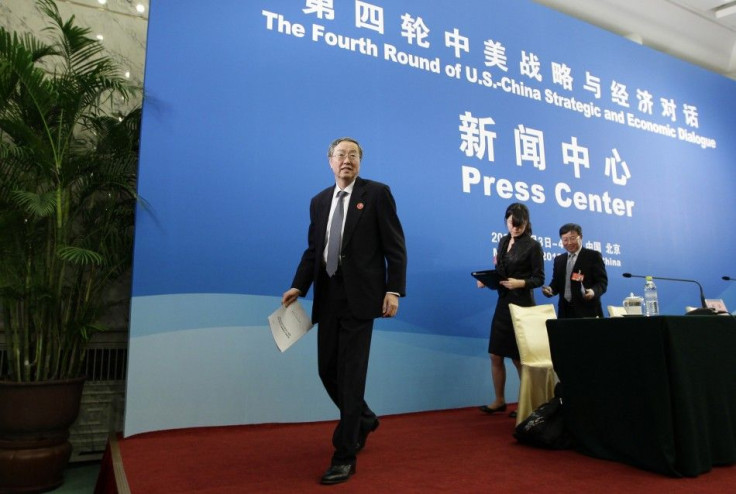People's Bank of China Cuts Reserve Requirement Ratio By 0.5%

China's economic growth has been comparatively anemic lately, so the People's Bank of China will give it a transfusion by cutting the banks' reserve requirement ratio by 0.5 percentage point (50 basis points) on May 18, according to the country's official Xinhua News Agency.
The central bank in the world's second-largest economy already has cut the banks' reserve requirement ratio a couple of times since last Dec. 5 by a total of 1.0 percentage point (100 basis points).
Altogether, the three cuts in the ratio will bring it down to 20.0 percent this spring from a record 21.5 percent last fall.
The central bank's latest move should make available an estimated 400 billion yuan ($63.5 billion) for lending by big banks, according to Reuters.
Meanwhile, the National Bureau of Statistics of China reported Friday the country's consumer price index in April rose 3.4 percent, which compares favorably with the 12-month peak increase of 6.5 percent recorded last July.
Accordingly, the CPI and other data series indicate there may be room for even more monetary stimulus by the central bank, especially given the synchronized global economic slowdown now under way.
Unlike certain other central banks -- code for the European Central Bank and U.S. Federal Reserve -- the People's Bank of China has been criticized recently not for doing too much but for doing too little.
The central bank should have cut RRR after [first-quarter] data. It has missed the best timing, Dong Xian'an, chief economist at Peking First Advisory in Beijing, told Reuters. A cut today will have a much discounted impact. So the Chinese economy will become more vulnerable to global weakness and the slowing Chinese economy will in turn have a bigger negative impact on global recovery. Uncertainties in the global and Chinese economy are rising.
© Copyright IBTimes 2024. All rights reserved.












